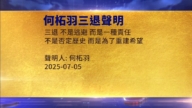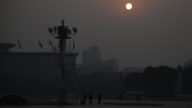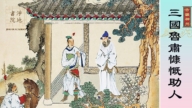【新唐人2011年2月8日讯】中国校友会网站发布了2011中国造富大学排行榜,北京大学造就的亿万富豪人数最多,有79人。清华大学有70人,名列第二,浙江大学有66人,名列第三,有专家认为,大学是培养知识专业人才的地方,不应该被看作是制造富翁的地方。
事实上,这个榜单由一系列排行榜组成,还包括“2011中国大学院士校友榜”、“杰出科学家校友榜”、“杰出政界校友排行榜”等。
海外网路杂志“中国事务”主编伍凡认为,大学是培养知识专业人才的地方,目标不是赚钱,不应该被看作是制造富翁的地方。
伍凡:“大学的目标是培养对社会有贡献的、有创造力的、能够有远见的一批知识精英或者知识份子,不是为了创造钱。创造钱是一个后果而不是一个目标。整个中国的大学系统全部堕落了,堕落成了资本家集团了,不是一个创造思想的地方,他们这些东西就是炫耀我这个大学能培养多少资本家。”
然而,在金钱至上的中国高校,乃至整个社会的理念与追求的大背景下,“造富排行榜”还是大大超越了其他排行榜,吸引了很多人的注意力。“北大最盛产亿万富豪”直接成了新闻的大标题,被广泛转载。而其他的榜单则被选择性忽略,成为了“富豪榜”的陪衬。
时事评论作者朱四倍则认为,在中国用行政模式管理大学,用行政思维决策学术问题的状况已较为普遍,世俗化、庸俗化之风吞噬着清新自由的学术空气。今天的中国大学什么都关心——谈经费、谈位置、谈机构、谈级别,但是谈的最少的往往却是教育和学术本身。大学似乎淡忘了对真、善、美的心灵渴求,大学精神在悄然失落。
美国最有影响力的大学排行榜出自《美国新闻与世界报导》,它评价大学的主要指标包括:在校生的回返率和毕业率(一年级新生的退学率和6年的毕业率),师资品质(小班课和大班课的百分比、教授平均工资和福利等),学校资金(一个财政年度内在教学、科研、服务以及其他有关方面为学生支出的人均费用)等。
专家指出,这些指标几乎都与教学和学生有关,所蕴含的理念也不言而喻——大学的核心功能,是培养人才。但在中国,琳琅满目的大学排行榜却有点走味,往往偏重科研条件和硬体设备,轻视人才培养。对高校“造富”能力的过分关注和追捧,也让众多大陆民众担心高校评价行业正在舍本逐末。
人人网网友李贺说:“应该看看大学培养了多少科学家、政治家(非政客)、企业家(非富豪)、军事家(非军阀),而不是以富豪数量作为好大学的标准。价值观的错误导向,最终也许会导致‘比拼培养了多少贪官’!”
新唐人记者王子琦、孙宁综合报导。
The China University Alumni Association website published the 2011 Ranking of Rich Alumni. Beijing University ranks 1st, with 79 billionaires. Qinghua University ranked second with 70.Zhejiang University ranked third with 66. Some experts believe that university should be the place to train professionals, not to create millionaires.
In fact, the list was composed of a series of ranking, including “2011 Alumini Ranking of Academician,”“Outstanding Alumni Scientist,” and “Outstanding Alumni Politicians” and so on.
Wu Fan, editor-in-chief of the magazine China Affairs thinks that universities are places to train professionals. It should not be a place to create millionaires.Its goal is not to make money.
Wu Fan: “Universities are places to foster elites or intellectuals that contribute to the society, rather than making money. Creating wealth is the result, not the goal of education. Chinese university system is corrupt. It has turned into capital groups. They are showing off how many capitalists the schools have fostered.”
In the current society with the admiration of money,this wealth ranking attracts many people’s attention,surpassing other rankings. “Beijing University has the most billionaires” was on news headlines, and was widely quoted, while other rankings were ignored.
Commentator Zhu Sibei believes, China manages universities and handles academic issues with political and administrative thinking. The fresh academic air has been polluted. Chinese universities today care about everything:funding, ranking, system, level, etc. While education and academics are ignored. Universities seem to have forgotten about the spiritual search of truth, compassion and beauty. They are losing their souls.
America’s most influential college rankings is by U.S. News and World Report. It uses key indicators such as the rate of student returning and graduation
(first year students drop-out and 6-year graduation rate), teacher quality (percentage of small and large classes,professors’ average salary and benefits, etc.), school funding (teaching, research, services, and other costs per student of one fiscal year) and so on.
Experts point out that these indicators are related to teaching and students, indicating the core concept of universities is to develop talent. But in China, the rankings are a bit off track. They are often biased towards research conditions and hardware equipment, while personnel training is not paid attention to. There is too much focus around schools ability to create “wealth.” Many people in Mainland China think the ranking of wealth is only about the unimportant.
Renren.com netizen Li He said: “We should look at the number of university-trained scientists, statesmen (not politicians), entrepreneurs (not magnates), military experts (not warlords), rather than the number of the rich, as a good
university standard. Misguided values will ultimately lead to “contest on how many corrupt officials are trained!”
NTD Reporters Wan Ziqi and Sun Ning




























